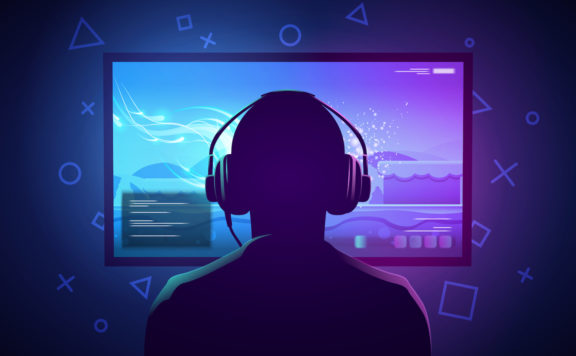How far we have come with video game technology is incredible and things are only going to get better. The prospects of the future are exciting and we should feel privileged to live in the times we do. From the very first video game to now having gaming sites like Beasts Of Poker filled with fun online gaming options, the change is immense.
The first-ever ‘real’ video game was developed in 1948. Goldsmith and Mann patented the video game as a ‘Cathode Ray Tube Amusement Device’. As you would expect from its name, it was a bulky and very expensive contraption that filled an entire room.
The Past
How did the CRT Amusement Device Define Video Gaming?
The video game was not much of a success, but it marked the current billion-dollar video gaming industry’s starting point. It is considered the grandfather of all video games for three reasons:
- It was an interactive electronic game.
- It had a video display. The player had to play or stand in front of it to play.
- The programmed game required skill.
Commercial Video Games
It was not until 1972 when the first video games made their way into people’s living rooms. The first commercial console, the Magnavox Odyssey, opened the floodgates of video gaming as it proved two things.
The first was that people had enormous appetites for interactive video games. The second is that the technology was ripe for mass production. Since then, we have seen troves of companies competing to make better and more compact video game hardware and more intelligent software.

The Age of Consoles
The second generation of video gaming devices reigned supreme between 1985 and 1995. As kids, the millennials built the video game empire with game arcades and home consoles at this time.
Nintendo redefined video game software with its ‘Entertainment Systems’ that featured the first 3D games and story-based games. The company also revolutionized the industry by separating gaming hardware from the software.
For the first time, one company manufactured the hardware, and others developed the games for it. This led to the explosion of the types, variety, and technologies of video games.
The Present
It would be accurate to say that today’s video games emerged around 1995 when Sony released the PlayStation 1. It was also at this time that handheld gaming devices started becoming very popular on gaming store shelves.
Before long, there was a split in the industry: handheld gaming devices branched off and led to the birth of devices such as PasoGo, Game Boy, and Neo Geo Pocket. Consoles became a specialty gaming device market dominated by Nintendo 64 and PlayStation.

The Unpredictability of the Gaming Industry
The dynamics in the video game industry are very unpredictable. Handheld gaming, for instance, is seemingly being killed off by smartphones. A new niche of video games, the online game played on a browser, is taking off and further propelling the industry in an unpredictable direction.
Gaming is so easily accessible nowadays, literally within seconds, you could pull up your phone and be playing a game.
The Future of Video Games
The console market is thriving, with Microsoft’s Xbox, Sony’s PlayStation, and Atari’s VCs expected to define the industry’s future.
Redefining Gaming
However, the definition of a video game has evolved a lot since the Cathode Ray Tube Amusement Device was patented.
The most significant change in how video games will be played in the future will not be the graphics; it will be the presentation mode. Forward-looking companies are presently researching the best ways to incorporate Virtual Reality and Augmented Reality into games.
Brain-to-Computer Gaming
The games of the future will probably have no physical controls. Research into ultra-high bandwidth brain-to-machine interfaces has shown that this could be the next big thing in computing technology.
You can already see in the news how people use this technology to control prosthetic limbs. It is just a matter of time before the technology finds its way to gaming. By then, we probably will not call it video gaming.

Intelligent Game Universes
The greatest revolution in gaming will be in how the games are created and developed. The incorporation of Artificial Intelligence into game development promises a future of games that is hard to conceptualize.
Picture a game with highly intelligent non-playable characters. These characters can recognize player actions and interact with elements and objects in the game. They can also learn from their actions and player reactions, just as living things do in real life.
Conclusion
These games of the future will be able to self-create. This means games will not be fully scripted, and the environments will be highly life-like. Combine such a game with brain-to-machine controls and VR and AR, and you have an alternate universe, not just a game.
It may sound like the stuff of science fiction, but this reality is as close as 20 to 50 years from today.







